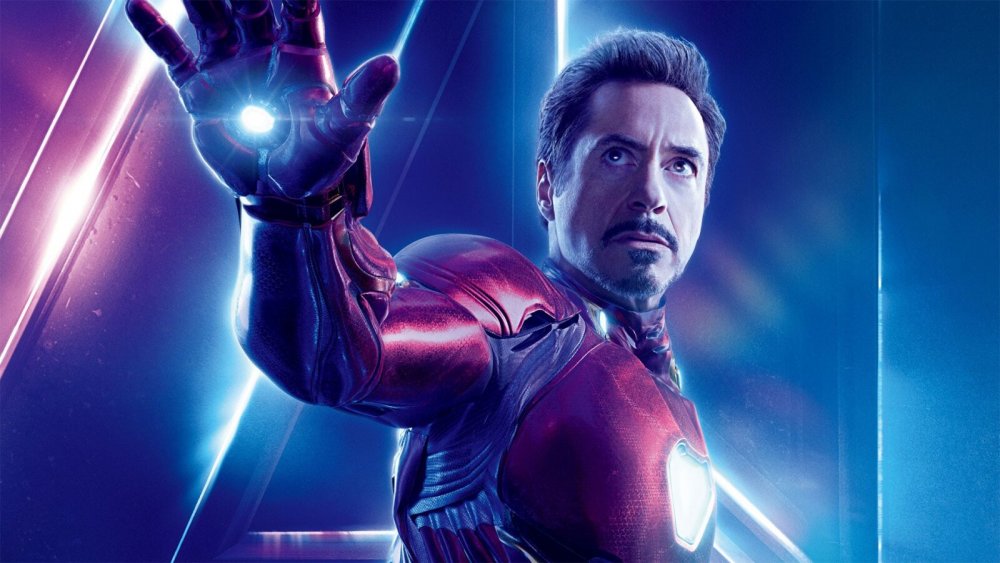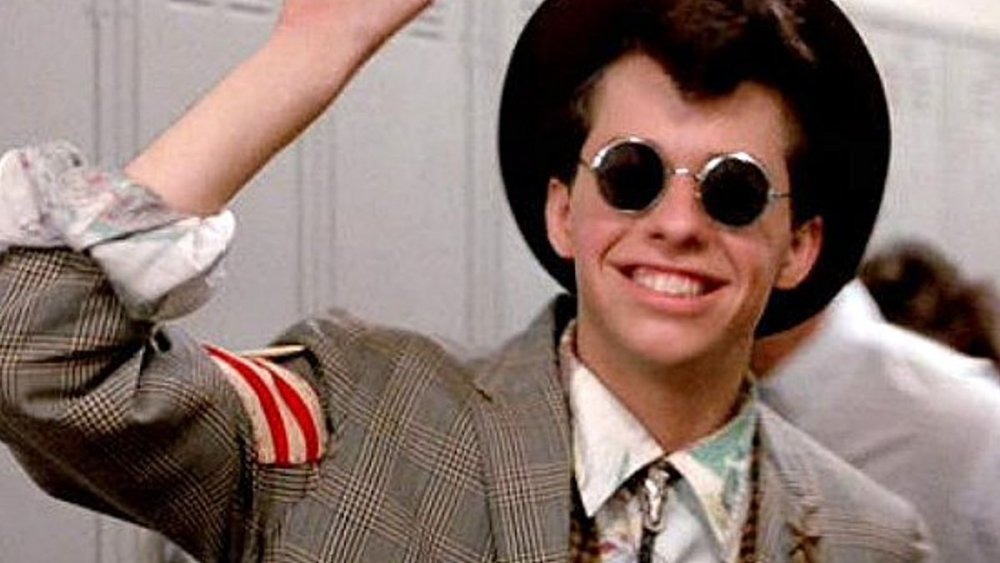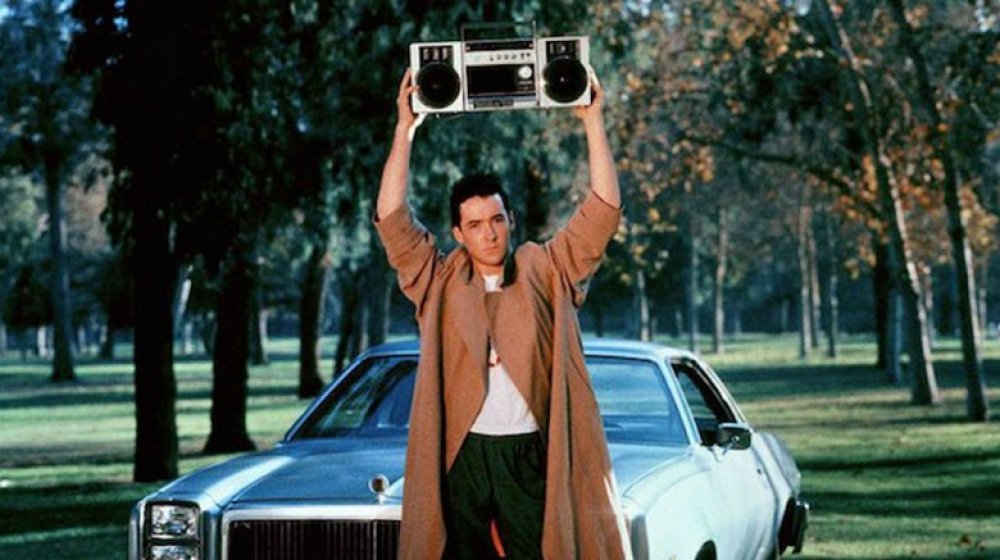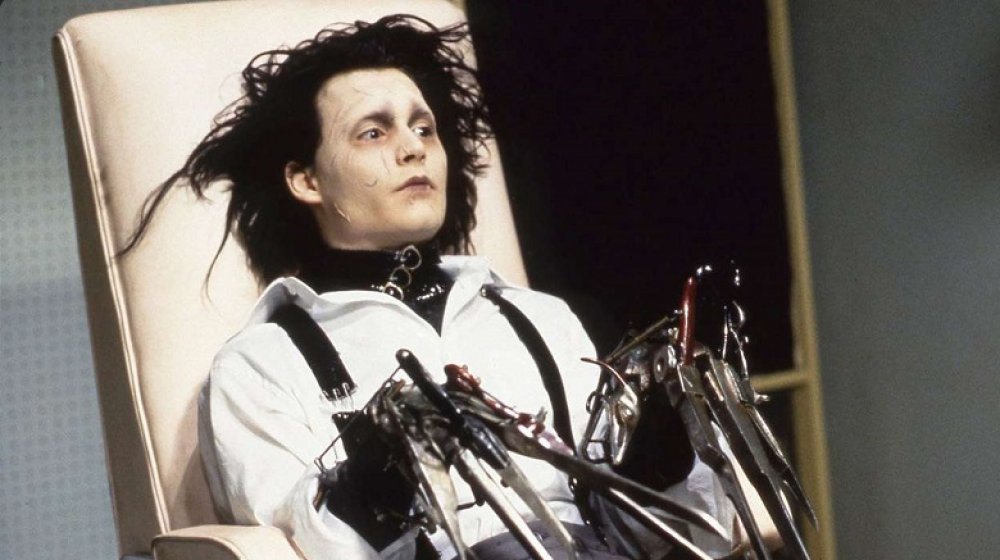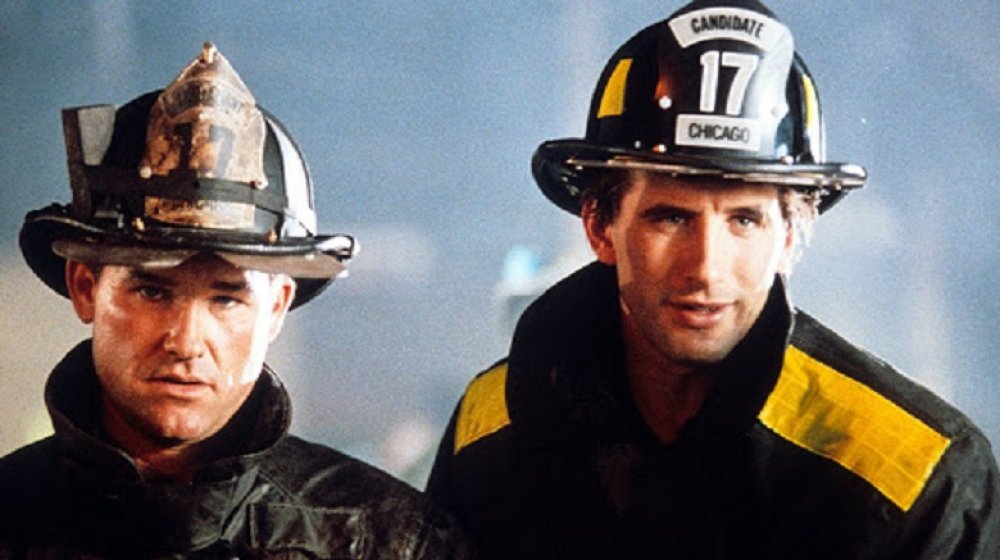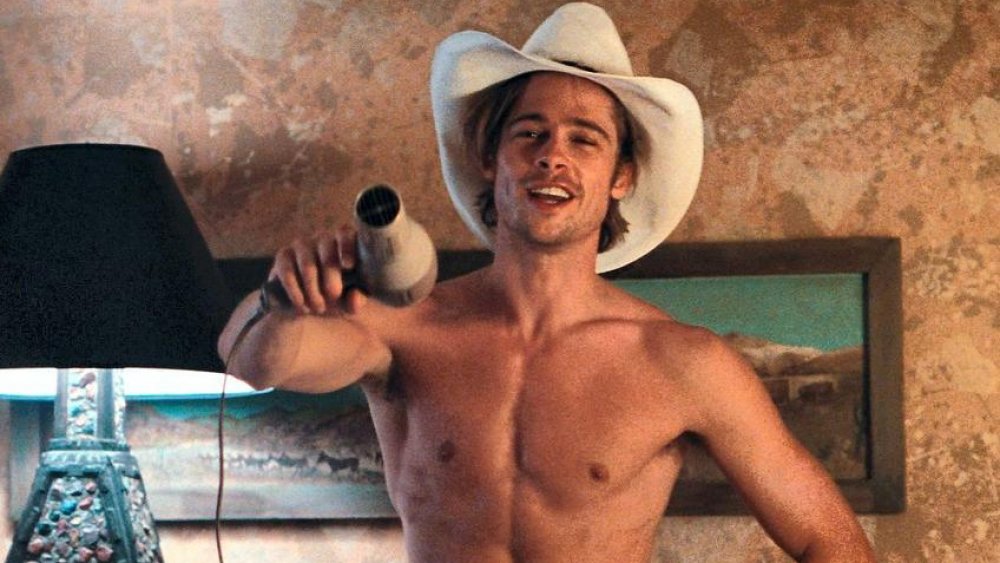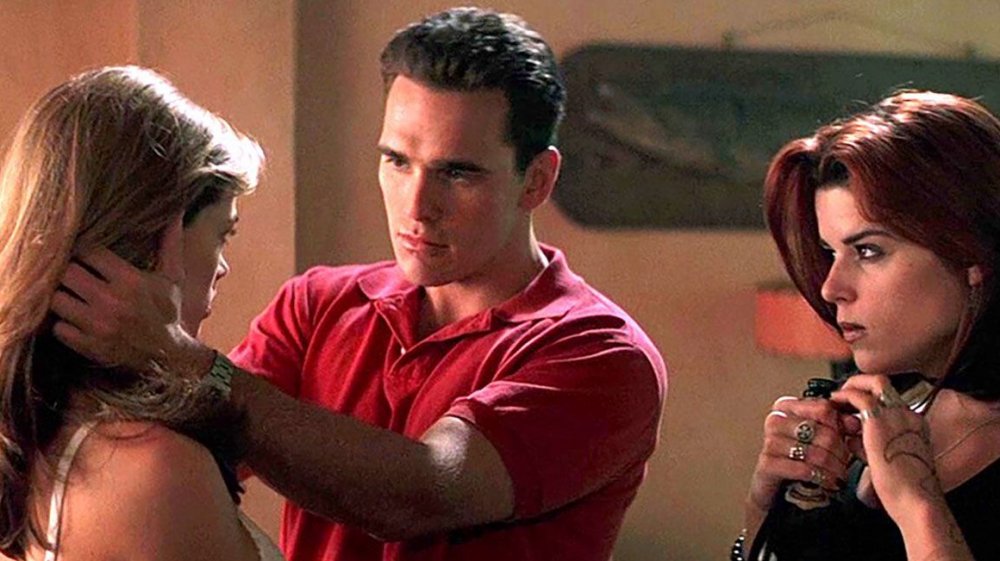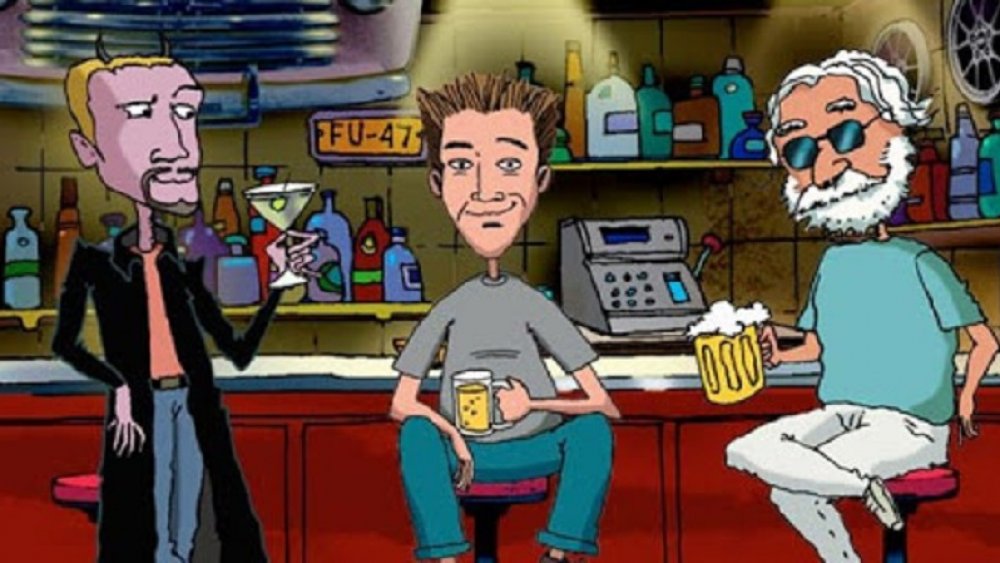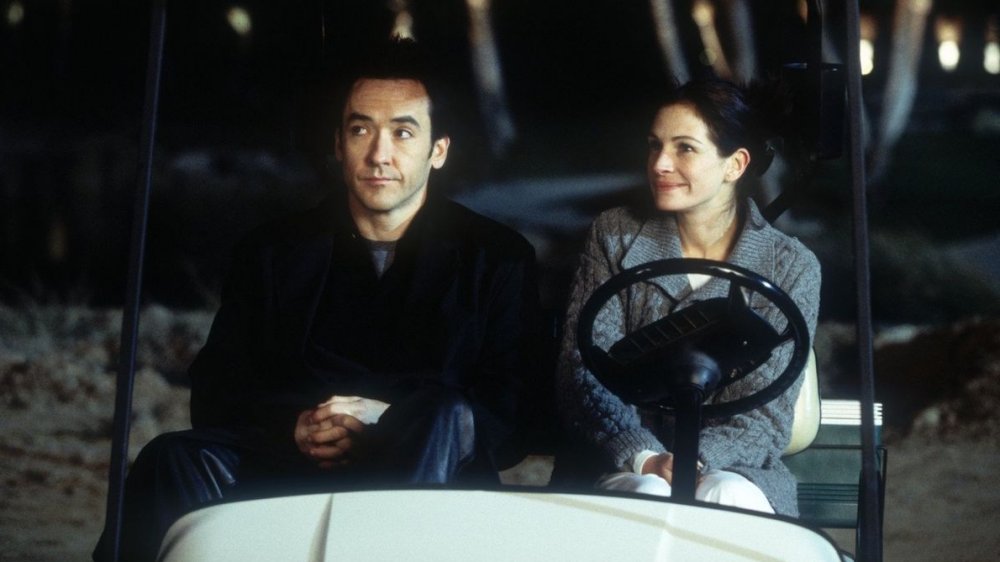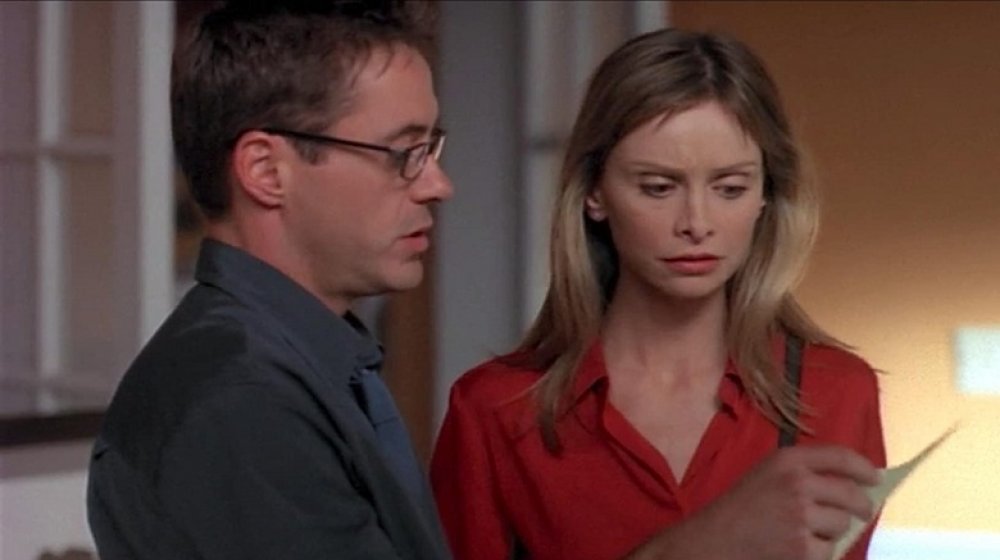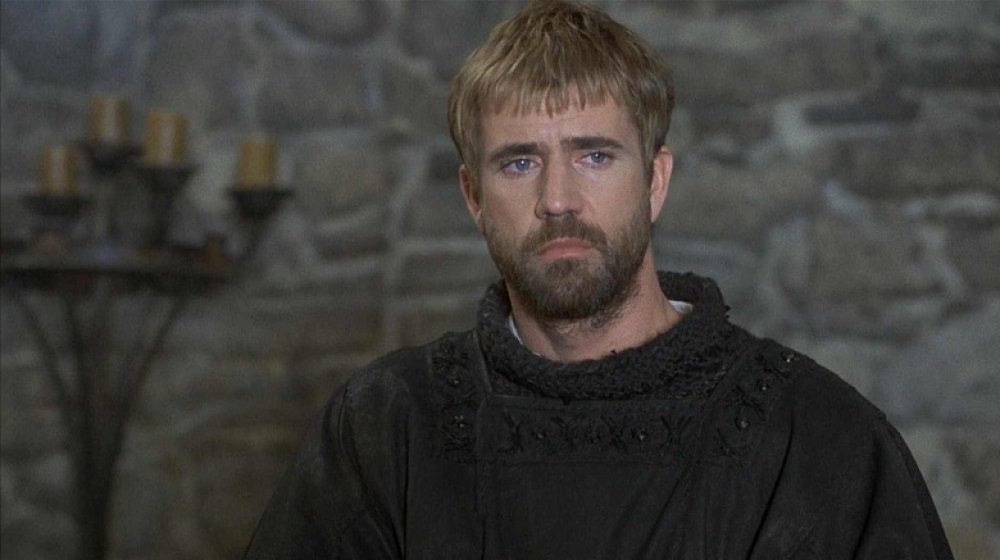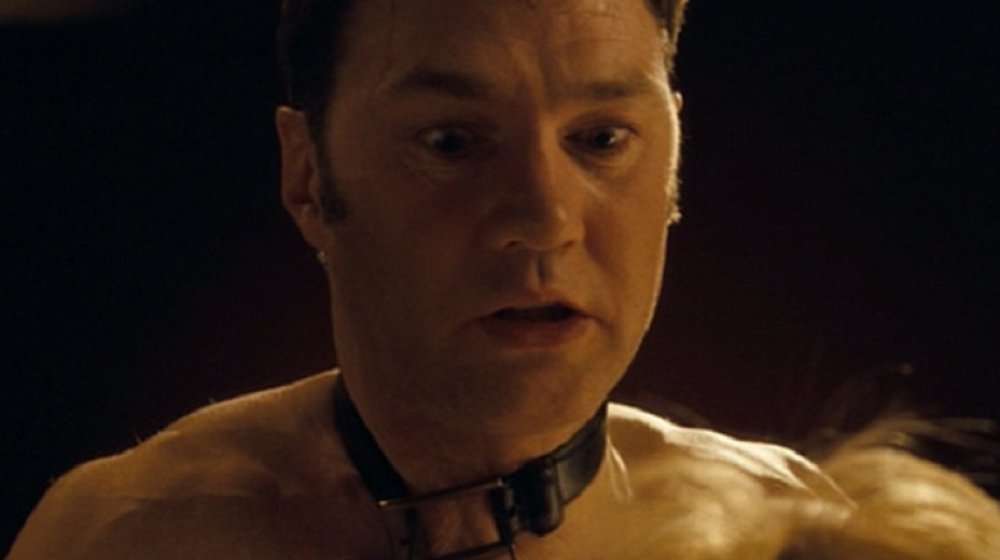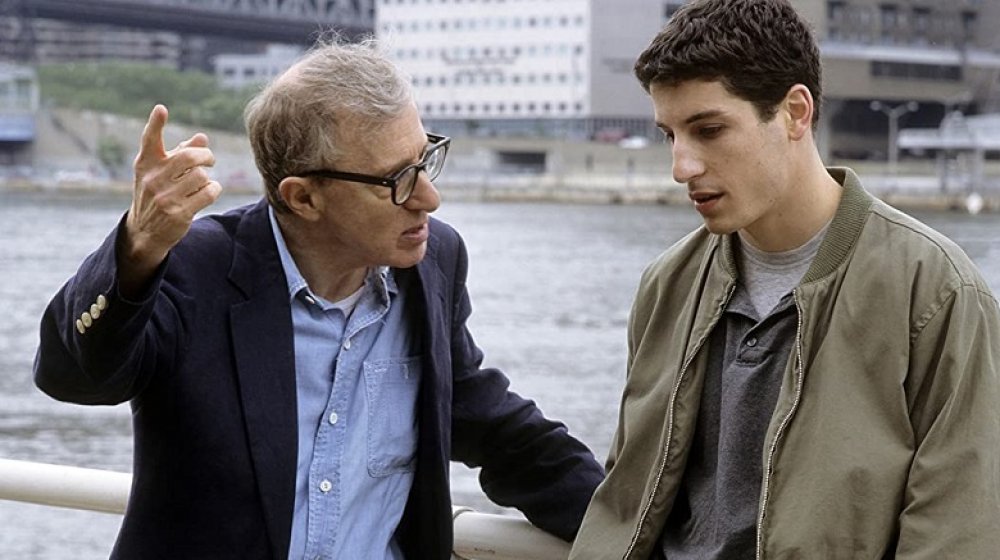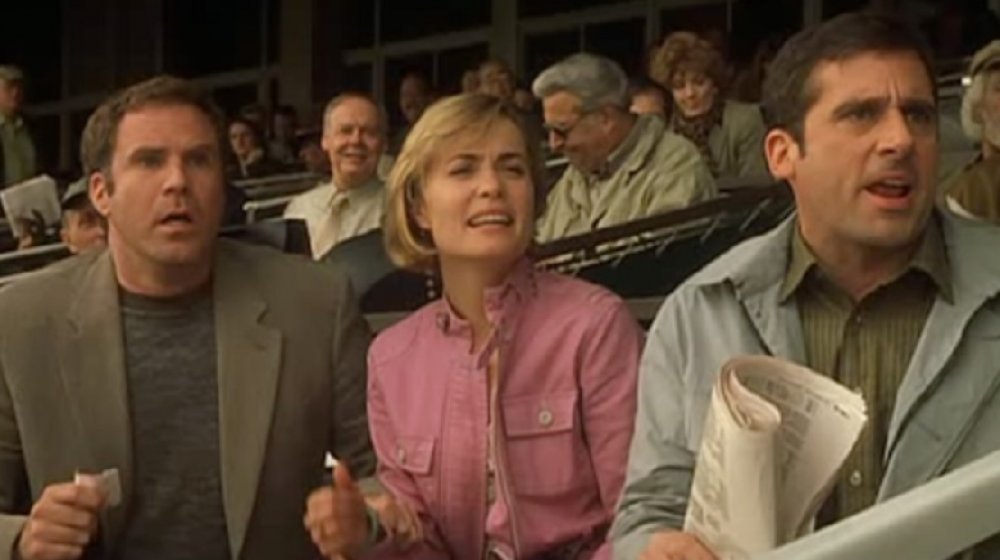Roles Robert Downey Jr. Lost Before Becoming Iron Man
It's estimated that Robert Downey, Jr. has made nearly $250 million from his appearances in the Marvel Cinematic Universe. That is an astounding career reversal for an actor who started off as a young prodigy, went through a whirlwind of drugs and eventual prison time, and is now reportedly one of the wealthiest actors in Hollywood. He got attention for roles in his early 20s like Weird Science (1985) and Back To School (1986). During this period, critic Roger Ebert described his performance as an addict in 1987's Less Than Zero as "so real, so subtle, and so observant that it's scary."
The L.A. Times said that 1992's Chaplin was "the role of his career," and it earned him an Oscar nomination. Four years later, his years of hard partying caught up with him, after a series of arrests and attempts at rehab. A judge in 1997 sent him to prison for 180 days after he violated the terms of his earlier parole. In 1999, he was sentenced to three years of prison after violating the terms of his parole again with more drunken incidents, though he only served a year of it in a rehab facility. He eventually turned things around in 2003, leading to his eventual MCU redemption.
All of which is to say that Robert Downey Jr. had an incredible journey before being cast as Iron Man, with remarkable highs as well as ruinous lows. Let's take a look at some of the roles he was turned down for before he became one of the cornerstones of the MCU.
Duckie: Pretty in Pink
The 1986 teen comedy Pretty in Pink, starring Molly Ringwald, Andrew McCarthy, and Jon Cryer, is a film about a poor girl named Andie who has a huge crush on rich guy Blaine, with her long-suffering best friend Duckie aiding her as she tries to get Blaine's attention. As revealed in the DVD bonus casting documentary "Richies and Zoids," Ringwald not only advocated for McCarthy to get the part of Blaine, she also stumped for Robert Downey Jr. to get the part of Duckie before it went to Cryer.
Part of this is because the original ending of the film had Andie wind up with Duckie, and Ringwald thought that Downey would make sense in this version of the film. Cryer gave her more of a "brother vibe" and has said that "if they remade the movie now, he (Duckie) would be gay." The studio said that audiences preferred the ending where she wound up with the upper-class Blaine and even had Duckie approve of him at the end.
Writer John Hughes and director Howard Deutch basically remade and gender-flipped this film the next year with Some Kind of Wonderful, with Eric Stoltz in the Andie role, Lea Thompson in the Blaine role, and Mary Stuart Masterson in the Duckie role. This time around, the long-suffering best friend won out in the end.
Downey would go on to star with Ringwald in 1987's The Pick-Up Artist — his first leading role in a film.
Lloyd Dobler: Say Anything
Writer-director Cameron Crowe wanted Robert Downey Jr. for the role of Lloyd Dobler in his 1989 classic romance Say Anything. This was a role that Downey actually turned down; of course, it went to John Cusack instead, and the image of him holding up a boom box playing "In Your Eyes" remains one of the most indelible cinematic moments of its era. Downey might have been the first choice, but he wasn't the only actor who had a shot at it: Before Cusack signed on to play Dobler, Christian Slater and Kirk Cameron were also considered for the role.
Speaking on the Howard Stern Show about turning down the role of Lloyd, he was asked if he regretted rejecting it. Downey replied, "I didn't feel sad; I felt it was trite. But it turned out to be a good movie."
Lloyd Dobler is an everyman character. In retrospect, it's difficult to see Downey inhabiting this role, especially given the type of effortlessly charismatic characters he tended to play during this era. Cusack gave Dobler the perfect balance between relatability and charisma, and it remains one of his best performances.
Edward: Scissorhands: Edward Scissorhands
When Tim Burton set about making his 1990 film Edward Scissorhands, he started out already settled on a leading woman for this oddly personal story about a gentle outcast who has scissors instead of hands. That actor was Winona Ryder, who'd previously starred in Burton's big hit Beetlejuice. For Edward Scissorhands, she signed on to play Kim, the eventual object of Edward's affection.
Finding a leading man for the film was a more difficult choice. Robert Downey Jr. was on that list — along with William Hurt, Tom Hanks, Gary Oldman, Jim Carrey, and Michael Jackson. The studio preferred Tom Cruise, who was interested but reportedly couldn't relate to the character's "lack of virility." Hanks passed on the role to star in the future bomb Bonfire of the Vanities, while Downey starred alongside Mel Gibson in Air America, sparking a lifelong friendship that would later help save Downey's career.
Ultimately, the role of Edward went to Johnny Depp, whose sensitive performance helped establish the young star as a leading man — and served as the first of many collaborations with Burton.
Brian McCaffrey: Backdraft
Ron Howard's 1991 firefighting/arson mystery thriller Backdraft is built on the fractious relationship between two firefighter brothers, one a grizzled vet and the other a rookie. There's actual footage of Robert Downey Jr. auditioning for the role of the rookie, macho firefighter Brian McCaffrey. Downey's contemporaries Brad Pitt and Keanu Reeves also auditioned for the part, which went to William Baldwin. It was his first starring role, and he gave it a kind of goofy, smirking energy that contrasted co-star Kurt Russell's intense energy.
Downey would have matched that intensity while still adding an insolent edge to the role. It's a shame he lost out on the part, because he would have elevated it in a way very different from the laid-back approach Baldwin took.
Downey played a sleazy producer in the 1991 comedy Soapdish instead. The role was originally written for a 45-year-old man, but was rewritten for Downey. This was despite some pushback from the producers of the film, but director Michael Hoffman insisted that Downey would work for the job, referring to him as a "genius improviser."
J.D.: Thelma And Louise
Director Ridley Scott assessed a number of different actors for the small but key role of J.D., the hunk that Geena Davis' Thelma character sleeps with in 1991's Thelma & Louise before he robs her and her pal Louise of their money.
George Clooney, a very young Mark Ruffalo, and Dermot Mulroney all auditioned and were turned down. William Baldwin accepted the role and then backed out to go make Backdraft.
That's when Robert Downey Jr. came in. He liked the script and told the casting director that he'd take whatever they had left in the budget — he wasn't going to ask for a lot of money. That casting director put a stop to those plans by asking Scott, "Isn't he too short? Next to Geena?"
After Downey missed out on the chance to play J.D., an obscure actor named Brad Pitt was chosen for the role. The rest is history. It's hard to imagine anyone else inhabiting the cocky, conniving, cowboy-hat wearing hustler.
Sam Lombardo: Wild Things
Early in his career, Robert Downey Jr. lost roles for the usual reasons: he wasn't a good fit, didn't have the kind of chemistry directors wanted, or they simply found someone who they liked better in a particular part. By 1998 and Wild Things, however, Downey was starting to lose roles because of his personal behavior.
Downey was initially cast for the role of sleazy high school guidance counselor Sam Lombardo precisely because of his bad-boy reputation. Downey would have brought an earnest sleaziness to this role that could have kept the audience guessing in a film that doesn't have a plot as much as it has a series of plot twists.
However, the film's insurance bonders refused to deal with Downey and his issues, so director John McNaughton was forced to recast the role — and Matt Dillon got it, bringing a completely different energy to the part. Instead, Lombardo acquired a relentless, square-jawed seriousness that wound up giving the film much of its campy edge. It's a cult classic today thanks to that campiness.
The Devil: God, The Devil, And Bob
Given the reputation he'd acquired by the time the series entered production, it's fitting that Robert Downey Jr. was set to play the Devil in the 2000 animated series God, The Devil, And Bob. Unfortunately, after his 1999 arrest and rehab stint, Downey was reportedly fired from the show for missing rehearsals, and the role went to Alan Cumming. This was an inspired choice, all things considered, as Cumming added a sense of suave sophistication to a story revolving around a bet between God and the Devil regarding the fate of the world that rested the outcome on a factory worker named Bob.
Only 12 episodes of the show were made; of those, only four were aired. Low ratings and pressure from religious groups scuttled the series early, and Cumming later bemoaned that American audiences weren't ready for this kind of religious satire.
There's no doubt that Downey's quick wit and verbal dexterity would have also served this series well.
Eddie Thomas: America's Sweethearts
After his arrest in December of 2000, Robert Downey Jr. was fired from the film America's Sweethearts. Directed by Joe Roth and co-written by Billy Crystal, the project would have seen Downey playing the male half of America's favorite acting couple (Eddie Thomas), with Catherine Zeta-Jones playing the other half (Gwen Harrison). The problem is that they've had a horrible breakup, and it's up to Gwen's publicist sister (played by Julia Roberts) to get them back together in order to promote a new film.
Downey was apparently fired because of the incident, the potential for him to return to prison, and the fact that he was uninsurable at this point. As he'd done with Say Anything, John Cusack took over a part that was originally meant for Downey, assuming the role of Eddie. Cusack was solid in this part and had established chemistry with Zeta-Jones after they appeared briefly in High Fidelity together, but he didn't quite have the narcissistic movie star swagger that Downey could have brought to the film.
Larry Paul: Ally McBeal
One of Robert Downey Jr.'s first big comebacks came when he was cast as Calista Flockhart's new boyfriend Larry Paul in the hit show Ally McBeal in 2001. This quirky show about a sexy single lawyer and her friends was a big hit early on, but needed a boost after the third season. Showrunners hired Downey to play a lawyer with a dark secret who defends Ally in a defamation case and later goes on to date her. Larry proposes to Ally in the next-to-last episode of the season, with the wedding supposed to take place in the finale. The fifth season was to tell the story of their marriage.
However, Downey was fired before the finale had been filmed. Series creator David E. Kelley rewrote the whole thing, with Larry simply not showing up. Kelley had supported him as long as possible through other incidents, but the arrest proved to be the final straw. "He'd been so good," Kelley said. "He left a huge void." It speaks to the power of Downey's range as a comedic and dramatic actor that his absence was felt so strongly. He won a Golden Globe award for his efforts, and hasn't returned to television since.
Hamlet: Hamlet
Ten years after he played the role of William Shakespeare's Hamlet onscreen in 1990, Mel Gibson was set to direct his friend Robert Downey Jr. in a stage production of the play. Downey might have seemed like an unusual choice to some, but his take on the Melancholy Dane would have undoubtedly been fascinating. Gibson played Hamlet in his movie as though he was an unhinged action hero (in other words, like many of his characters). Downey could certainly have given the character the same kind of visceral thrills in his plot against his stepfather, only with a different depth and range of emotions.
Scheduled for January of 2001, the play got scuttled with the December 2000 arrest that also ended Downey's stint on Ally McBeal. He eventually wound up leaving the project at the same time he blew his rehearsals for God, The Devil, And Bob. This will forever remain a tantalizing "What if?" in his career.
Michael Glass: Basic Instinct 2
Sequels can be tricky things. The 1992 erotic thriller Basic Instinct, directed by Paul Verhoeven, rode the edge between sleazy and ridiculous and made a star out of Sharon Stone. Nearly ten years later, Stone was all in on a sequel, but costar Michael Douglas and director Verhoeven were not. They knew what they were doing — as did Downey, who was offered the leading man role in 2001 despite the mounting public problems damaging his career at the time. He declined as well.
For Basic Instinct 2, David Morrissey eventually got the part of Dr. Michael Glass, a psychiatrist appointed to question and evaluate Stone's Catherine Trammell character, who infamously loves ice picks and hates wearing underwear. The film didn't get made and released until 2006, and it turned out to be a huge bomb, making just $6 million against an $80 million budget. To add insult to injury, Basic Instinct 2 "won" four Razzie Awards, including Worst Picture and Worst Actress for Stone.
Jerry Falk: Anything Else
Robert Downey Jr. was set to star in the 2003 Woody Allen comedy Anything Else alongside Winona Ryder — another actor who had her own embarrassing public issues around the turn of the century. The film was based on Allen's own experience as a young writer, meeting an older writer who was a mentor to him; Allen was to play the mentor, and Downey was supposed to be the Allen stand-in character, Jerry Falk. Instead, Jason Biggs got the part. While Biggs nailed the neuroses of the character, he wasn't quite able to give the character the depth and pathos that Downey might have brought to it. The character's self-destructive qualities also matched Downey's experiences closely.
Downey got far enough into the process to take a physical, but the deductible for the insurance was simply too high for the producers to cover. At this point, Downey had staged a bit of a career comeback; his old Air America buddy Mel Gibson paid for Downey's insurance so he could star in The Singing Detective. The producers of Gothika withheld most of his fee until after the movie was completed. Allen was angry about the missed opportunity, saying "I found the whole thing outrageous. He's a great talent, he'd just done two movies with no problem and we were crushed that the insurance company was being so difficult."
Hobie: Melinda and Melinda
Woody Allen tried and failed a second time to cast Downey in one of his films while putting together 2004's Melinda and Melinda, The story of a group of writers debating whether the essence of humanity is tragic or comic. In his book Conversations with Woody Allen, Allen said "We were originally going to work with Winona Ryder and Bob Downey and I couldn't get insurance on them. The insurance companies are very prissy and sticky and gave us a hard time... I had always wanted to work with Bob Downey and always thought he was a huge talent."
Ryder was replaced by Radha Mitchell as Melinda and Downey by Will Ferrell as Hobie. Ferrell is actually quite a good dramatic actor and was up to the task, but Downey's versatility would have come in handy for a film with two different and competing narratives (one tragic, one comic).
